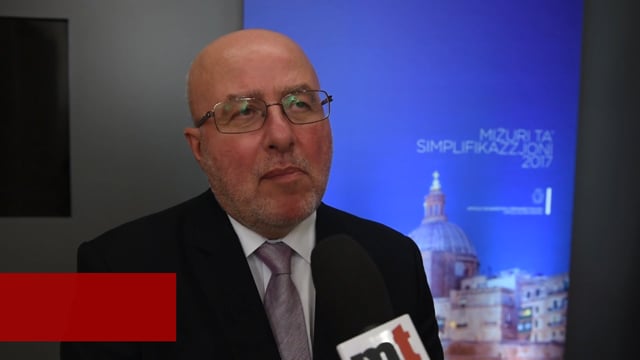[WATCH] Online services, less red tape making government more accessible, Mario Cutajar says
Government services line 153 receiving 30,000 calls a month, Principle Permanent Secretary Mario Cutajar says, as he outlines measures which cut bureaucracy


Around 79% of the simplification measures the government had promised were implemented by 2017, Principal Permanent Secretary Mario Cutajar said today, highlighting the government's drive to be more accessible to the people.
"By 2017, the government had put in place 161 measures to simplify the services it offers, including servizz.gov, which provides a whole multitude of services in one place and has seen the creation of 680 e-forms which can be submitted online," he said.
The government had also set up the "Business First" platform, through which only a single form is needed to start a business, compared to the 22 or so needed previously. "The time taken to have the application approved has been reduced from around two or three months to just a handful of days."
People could now use one telephone number - 153, which is receiving 30,000 calls a month - to enquire about all the services offered by the government.
The government's focus has to now be on increasing the uptake of such services, Cutajar said.
Bureaucracy being reduced
Simplification Commissioner Rosianne Cutajar, a Labour MP, said the public service was striving to solve problems people encountered, especially those caused by too much bureaucracy.
She added that MEA Index, a website which can help people wanting to start a business by giving them the information they require, has also been set up.
Remarking that the word "bureaucracy" annoyed her, Reforms Parliamentary Secretary Julia Farrugia said that an excess of this could slow down the progress of things.
The government is comitted to being more accessible to the people, and the one-stop-shops it had established were a way of doing this, Farrugia underscored, adding that the state was striving to be more customer-oriented and reduce waiting times to obtain a service.






.jpg)
















